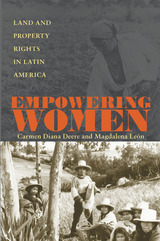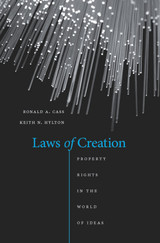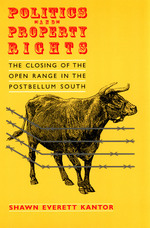
In Body Parts, E. Richard Gold examines whether the body and materials derived from it—such as human organs and DNA—should be thought of as market commodities and subject to property law. Analyzing a series of court decisions concerning property rights, Gold explores whether the language and assumptions of property law can help society determine who has rights to human biological materials.
Gold observes that the commercial opportunities unleashed by advances in biotechnology present a challenge to the ways that society has traditionally valued the human body and human health. In a balanced discussion of both commercial and individual perspectives, Gold asserts the need to understand human biological materials within the context of human values, rather than economic interests.
This perceptive book will be welcomed by scholars and other professionals engaged in questions regarding bioethics, applied ethics, the philosophy of value, and property and intellectual property rights. Given the international aspects of both intellectual property law and biotechnology, this book will be of interest throughout the world and especially valuable in common-law (most English-speaking) countries.


While innovative ideas and creative works increasingly drive economic success, the historic approach to encouraging innovation and creativity by granting property rights has come under attack by a growing number of legal theorists and technologists. In Laws of Creation, Ronald Cass and Keith Hylton take on these critics with a vigorous defense of intellectual property law. The authors look closely at the IP doctrines that have been developed over many years in patent, copyright, trademark, and trade secret law. In each area, legislatures and courts have weighed the benefits that come from preserving incentives to innovate against the costs of granting innovators a degree of control over specific markets. Over time, the authors show, a set of rules has emerged that supports wealth-creating innovation while generally avoiding overly expansive, growth-retarding licensing regimes.
These rules are now under pressure from detractors who claim that changing technology undermines the case for intellectual property rights. But Cass and Hylton explain how technological advances only strengthen that case. In their view, the easier it becomes to copy innovations, the harder to detect copies and to stop copying, the greater the disincentive to invest time and money in inventions and creative works. The authors argue convincingly that intellectual property laws help create a society that is wealthier and inspires more innovation than those of alternative legal systems. Ignoring the social value of intellectual property rights and making what others create and nurture “free” would be a costly mistake indeed.

In this original study, Kantor uses economic analysis to show that, contrary to traditional historical interpretation, this conflict was centered on anticipated benefits from fencing livestock rather than on class, cultural, or ideological differences. Kantor proves that the stock law brought economic benefits; at the same time, he analyzes why the law's adoption was hindered in many areas where it would have increased wealth. This argument illuminates the dynamics of real-world institutional change, where transactions are often costly and where some inefficient institutions persist while others give way to economic growth.
READERS
Browse our collection.
PUBLISHERS
See BiblioVault's publisher services.
STUDENT SERVICES
Files for college accessibility offices.
UChicago Accessibility Resources
home | accessibility | search | about | contact us
BiblioVault ® 2001 - 2024
The University of Chicago Press









